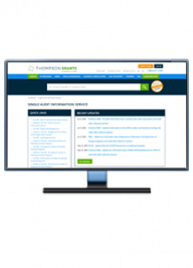Sneak Preview: ACF Workgroup To Assess LIHEAP Eligibility Data

(The following was excerpted from a recent Thompson Grants 360 article.) The Department of Health and Human Services (HHS) Administration for Children and Families (ACF) this year plans to develop a workgroup of Low-Income Home Energy Assistance Program (LIHEAP) grantees to discuss challenges and possible solutions to using electronic data sources to verify beneficiary eligibility, in response to recommendations in a recent Government Accountability Office (GAO) report.
To improve program administration and integrity, federal agencies are increasingly using electronic data to verify income to determine beneficiary eligibility for various programs providing assistance to low-income individuals and families. GAO examined six federal programs that were among the largest in terms of federal spending on low-income programs to assess their requirements for verifying eligibility and the data sources used.
Three programs GAO reviewed ― Housing Choice Vouchers, Medicaid and the Supplemental Nutrition Assistance Program (SNAP) ― have federal requirements for agencies administering these programs to use data sources to verify beneficiary income. However, three other programs that GAO reviewed ― Earned Income Tax Credit, LIHEAP and Supplemental Security Income ― do not have requirements specifically requiring the use of electronic data to verify income, although agencies overseeing LIHEAP, for example, did tell GAO that they “strongly encourage” grantees to review electronic data for verification purposes.
GAO found that the agencies managing these six programs use 13 federal, 14 state and seven commercial data sources to verify income or assets. Agencies overseeing all six programs use state-level data on unemployment compensation to ascertain income, while agencies managing two programs (LIHEAP and SNAP) report encouraging the use of state data on income from child support to verify eligibility, but its use is not expressly required under the programs’ laws or regulations.
After reviewing state plans as part of their annual application for LIHEAP funding, GAO learned that 13 state agencies administering the program reported using no electronic data to verify beneficiaries’ income, instead verifying income in other ways, such as checking beneficiaries’ documents. Although ACF encourages LIHEAP agencies to use electronic data to improve program integrity, it has not taken steps recently to share ideas that could boost the use of electronic data sources by all state agencies.
In relation to another low-income program, while state or local public housing agencies (PHAs) administering Housing Choice Vouchers have the flexibility to use other data sources in addition to federally required ones, the Department of Housing and Urban Development (HUD) has not made efforts to better understand or share information on the use of these other data sources that could further enhance efficiency or accuracy in verifying beneficiary income, such as by surveying PHAs or by soliciting and sharing potentially useful information in existing forums attended by PHAs.
(The full version of this story has now been made available to all for a limited time here.)
Join us for our following Thompson Grants event:
Virtual Federal Grants Forum: For State & Local Governments | May 11 - 12, 2021
Federal Grants Forum For Institutions of Higher Education | July 21 - 22, 2021



